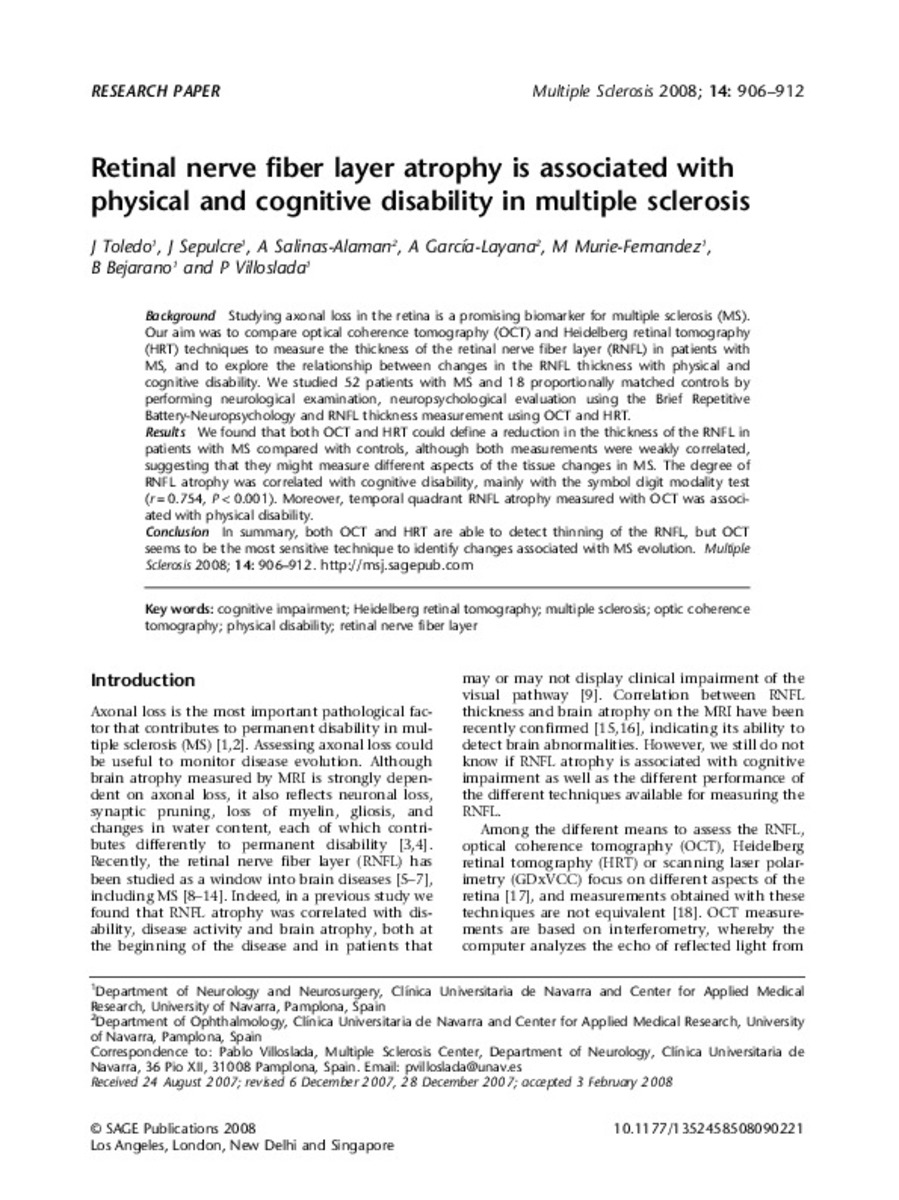Retinal nerve fiber layer atrophy is associated with physical and cognitive disability in multiple sclerosis
Keywords:
Multiple Sclerosis
Optic Nerve
Optic Neuritis
Citation:
Toledo J, Sepulcre J, Salinas-Alaman A, Garcia-Layana A, Murie-Fernandez M, Bejarano B, et al. Retinal nerve fiber layer atrophy is associated with physical and cognitive disability in multiple sclerosis. Mult Scler 2008 Aug;14(7):906-912.
Statistics and impact
0 citas en

0 citas en

Items in Dadun are protected by copyright, with all rights reserved, unless otherwise indicated.








